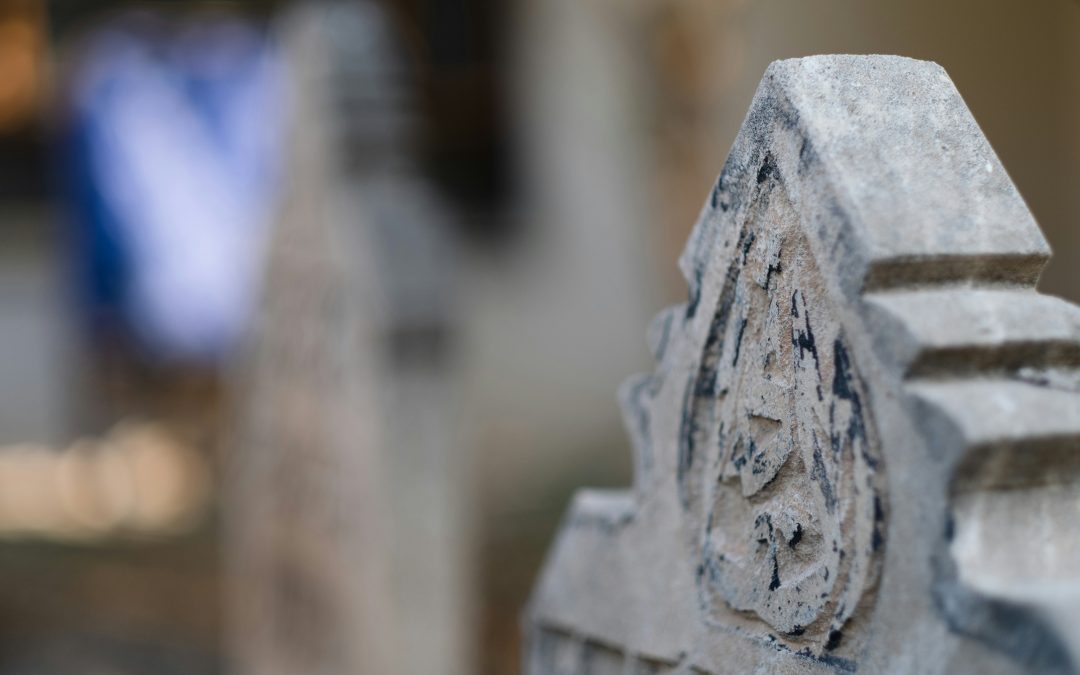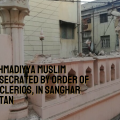In a disturbing incident that highlights the ongoing persecution of the Ahmadiyya community in Pakistan, eight tombstones at the Ahmadiyya Cemetery in Barmoj Goi, District Kotli, AJK, were desecrated on the night between March 7th and 8th, 2024. The International Human Rights Committee (IHRC) has received reports of this heinous act, which follows a series of hateful activities targeting the Ahmadiyya community in the region. CAP Liberté de Conscience, a prominent organization advocating for religious freedom, has lent its support to denouncing this incident and calling for action to protect the rights of the Ahmadiyya community in Pakistan.
The International Human Rights Committee (IHRC) has received disturbing reports regarding the recent desecration of tombstones at the Ahmadiyya Cemetery in Barmoj Goi, District Kotli, AJK, Pakistan. On the night between March 7th and 8th, 2024, unidentified perpetrators vandalized and damaged eight tombstones belonging to Ahmadi graves.
This incident follows a series of hateful activities targeting the Ahmadiyya community in Pakistan. Just days prior to the cemetery desecration, there was an attack on the Ahmadiyya worship place in Kotli, where the minarets were damaged. These events highlight the escalating hostility towards the Ahmadiyya community and their places of worship.
In Pakistan, the Ahmadiyya Muslim community has been subjected to systematic discrimination, persecution, and violence due to their religious beliefs. The Ahmadiyya Muslim community is the only religious community in Pakistan that is explicitly persecuted by law through the Second Amendment to the Constitution of Pakistan, which declares Ahmadis as non-Muslims. This discriminatory legislation has stripped Ahmadis of their basic rights as citizens and has resulted in widespread social and legal discrimination against them.
Additionally, blasphemy laws in Pakistan, originally introduced to target Ahmadis, have been used as a tool to target other religious minorities and dissenting voices within the country. These laws have been misused to falsely accuse individuals, including Ahmadis, of blasphemy, leading to arbitrary arrests, violence, and even extrajudicial killings. The misuse and abuse of blasphemy laws have created an atmosphere of fear and intolerance, particularly for religious minorities like the Ahmadiyya community.
It is important to note that the treatment of Ahmadis in Pakistan serves as a litmus test for the state of human rights and religious freedom in the country. The persecution faced by Ahmadis underscores the broader challenges of religious intolerance and discrimination in Pakistan and highlights the urgent need for reform and protection of fundamental rights for all individuals, regardless of their religious beliefs.
Conduct a thorough investigation into the desecration of the Ahmadiyya Cemetery in Barmoj Goi and hold the perpetrators accountable for their actions.
Take concrete steps to protect the rights of the Ahmadiyya community, including ensuring their safety and security, and safeguarding their places of worship and burial sites.
Enact legislation to combat religious discrimination and hate crimes and promote interfaith harmony and tolerance within Pakistani society.
Urge the government of Pakistan to uphold its obligations under international human rights law and protect the rights of all its citizens, including religious minorities like the Ahmadis.
Monitor and document cases of religious persecution and violence against the Ahmadiyya community in Pakistan, and raise awareness about these issues on the international stage.
Provide support and resources to NGOs, such as the International Human Rights Committee, that are working to combat religious persecution and promote human rights in Pakistan.
The International Human Rights Committee (IHRC) is a leading non governmental organization (NGO) dedicated to advocating for the rights of religious minorities, including the Ahmadiyya community, in Pakistan and around the world. The IHRC has conducted numerous fact-finding reports on the persecution of Ahmadis in Pakistan, which have been utilized by the United Nations, states, and other organizations to raise awareness about the human rights violations faced by Ahmadis. Through its advocacy efforts, the IHRC seeks to promote religious freedom, tolerance, and respect for human rights for all individuals, regardless of their religious beliefs.




